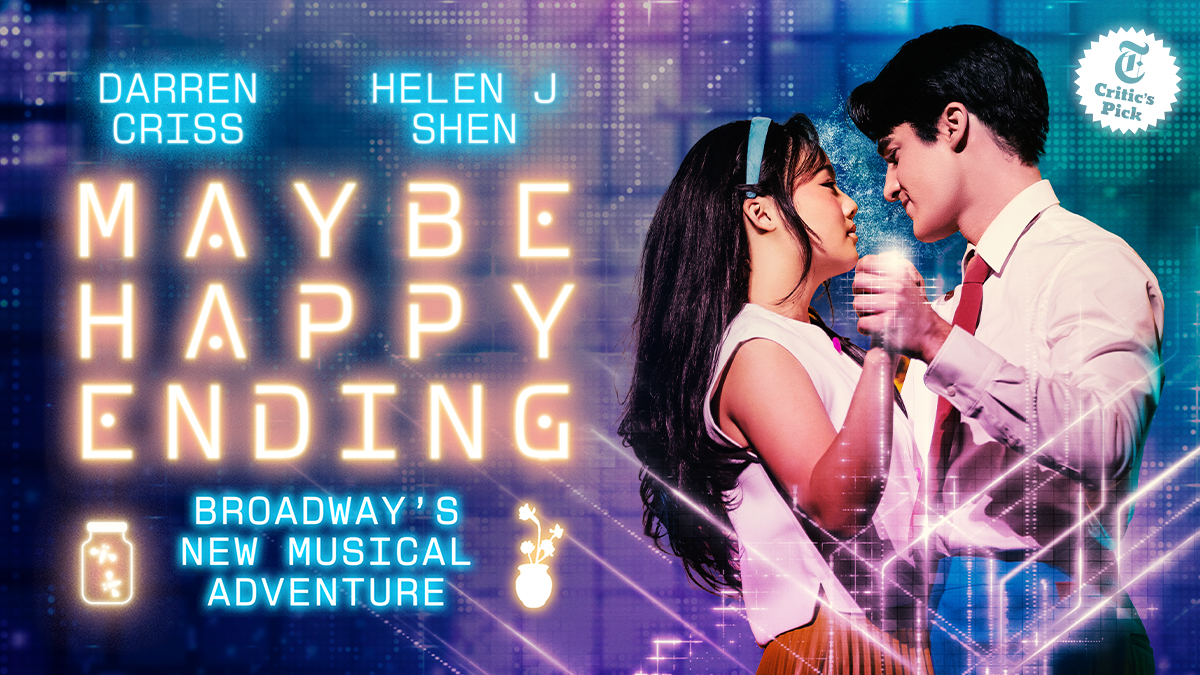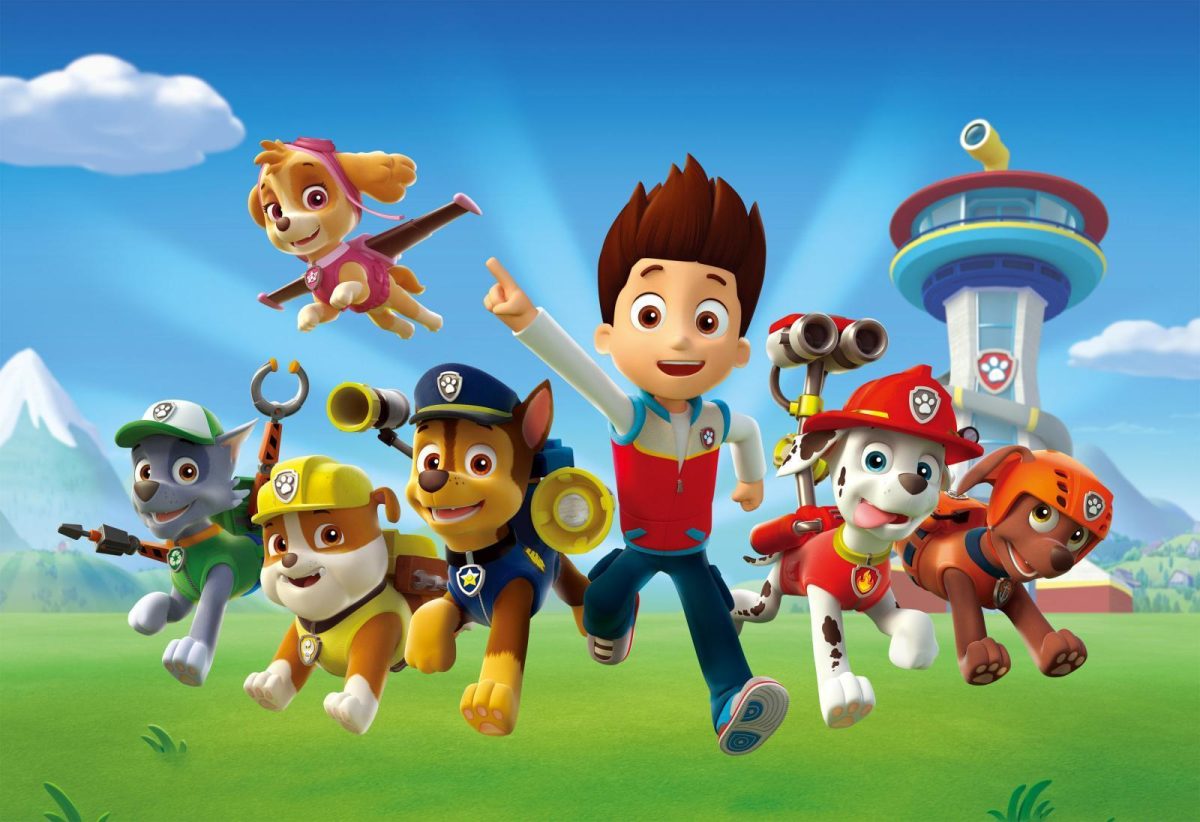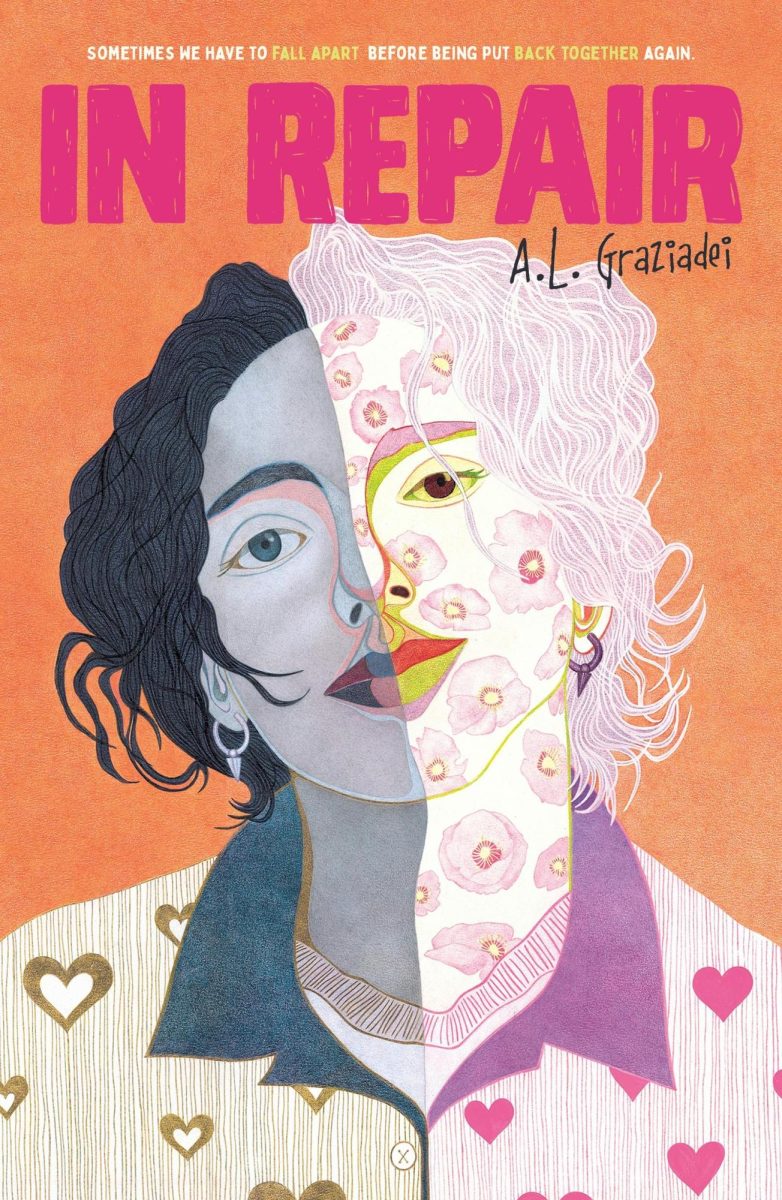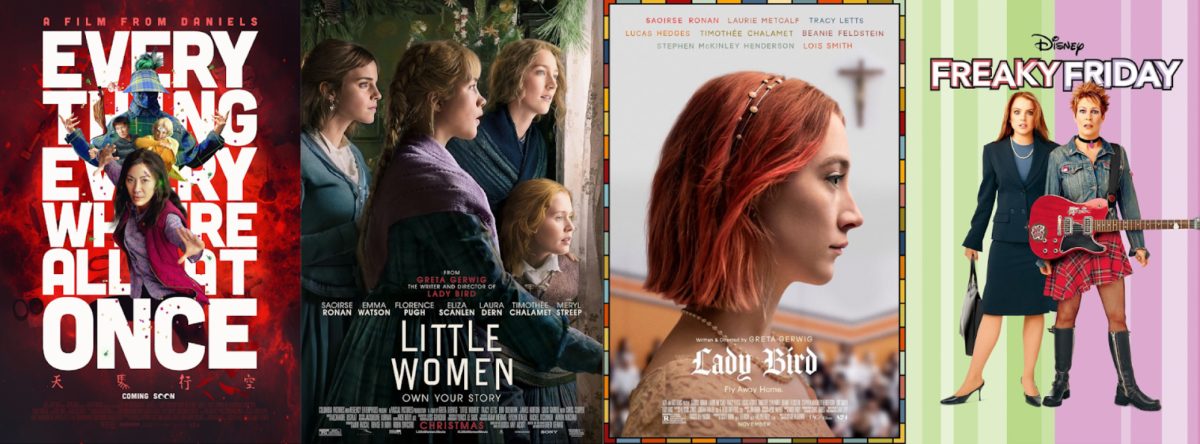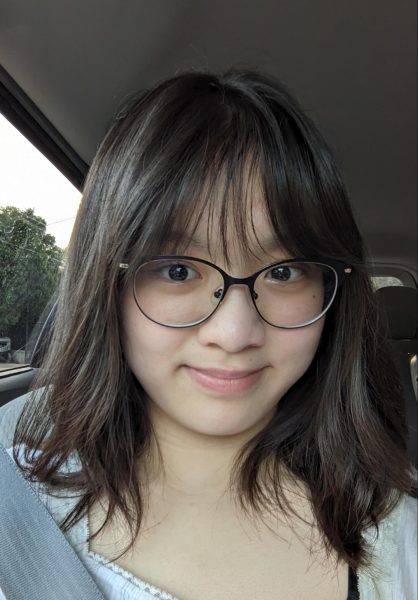Among the meadow of tall grass, glowing fireflies illuminate the midnight sky as orchestra members emerge from the scene. Around a gracefully rotating stage, lush string melodies and fluttering piccolo tones fill the air as two lovers move through the scene in awe. Though the couple appears human, underneath their jackets and button-down shirts are charging ports rather than beating hearts. Despite their boundless knowledge, the pair finds splendor in the soft glow of the wondrous creatures around them.
Set in the near future in Seoul, South Korea, Maybe Happy Ending tells the story of two retired Helperbots confined to the comforts of their one-room apartments in the Helperbot Yards. The initially Korean-language production first debuted in Seoul in 2016; in November of 2024, the production made its way to the Broadway stage. Oliver (Darren Criss) spends his days caring for his beloved houseplant, HwaBoon, and waiting patiently for a letter from his former owner, James (Marcus Choi). His entire world revolves around the comfort within his room until he unexpectedly crosses paths with Claire (Helen J. Shen), his cynical next-door neighbor, when she asks to borrow a charger—for herself. As the older Helperbot Model 5, her replacement parts are no longer manufactured, and her lifespan nears its end with each passing day—even robots are not immortal. Initially strangers to each other’s lonely worlds, they form a connection, unaware of the role they will come to play in each other’s lives.
In “The Way That It Has to Be,” Claire sings of the reality of her limited warranty and restricted expectations of her life—the trade-offs of a robot existence. Embarking on a journey to reunite Oliver with his owner, the pair must pretend to be lovers in order to pass as a normal traveling couple off to Jeju Island. Beginning an adventure but wary of her tragic robot fate, Claire makes Oliver promise one thing: he will not fall in love.
But how could a love story and robot existence coincide? Rather than laser beams and planet-colonizing machines—elements typically associated with the futuristic sci-fi genre—the musical offers an intimate glimpse into the future through jazzy orchestration and a tender telling of a very humane story (despite featuring android protagonists). Woven throughout the musical are Sinatra-esque jazz numbers performed by Gil Brentley (Dez Duron)—Oliver’s favorite all-American crooner straight out of a mid-1900s jazz era of slicked back hair and old-school broadcasting microphones. Serenading the audience with his silky-smooth voice, Brentley steps in between scenes to provide commentary on the progression of Oliver and Claire’s relationship like an old record coming back to life. In the opening number, “Why Love,” Brentley sings a sweet, sentimental tune about the human desire for a love story. Despite the reality of heartbreak and eventual goodbyes, human (and robot) beings still open themselves up to chase those moments of love.
A defining feature of the musical is the innocence and charm of the characters. With lighthearted humor and unbelievably realistic physical acting—robotic mannerisms and animated facial expressions—our protagonists capture the hearts of the audience with adorable storytelling of a first love.
Through its storytelling, music, and visuals, the musical offers an intimate experience that is certain to resonate with its audience. “I think that sometimes shows do get a little too big and obnoxious for me. Someone’s like, ‘I’m gonna sing this great song for five minutes.’ To me, it doesn’t have a lot of meaning. Whereas this, I feel like the story is so good that the songs don’t interfere with it, rather carry it along. It reminds me of Kimberly Akimbo. I really love that piece and other pieces similar to that, where I realized I do like these small-scale musicals where I really love the characters and the actors are really good and can get really detailed, rather than just a bunch of singing show girls.” said Theatre South director Ms. Ilana Meredith, who saw the musical in December.
Breathing life into the beautiful storytelling, the breathtaking set is impossible to overlook. Panning to and from Oliver and Claire’s apartments, a sliding-panel set transitions each set change in a seamless, high-tech fashion—almost as if we are watching a film. Encompassing the stage during certain heart-stabbing scenes are flashbacks taking the form of sophisticated video holograms; sure to impress, these clips from the protagonists’ complicated pasts capture the characters’ pain with perfection. In “What I Learned from People,” Claire reminisces about the painful decline of her previous owner’s romantic relationship and its catastrophic consequences. All relationships—romantic or platonic—are bound to end eventually. Immersing oneself in love is a recipe for inevitable heartbreak. Though it is true that relationships cannot last forever, Maybe Happy Ending teaches us that the fear of loss cannot hold us back from pursuing love.
While some shorter musicals leave audiences wanting more (ahem, Six The Musical), Maybe Happy Ending completes a beautiful story in 100 minutes, ending with a fulfilling closure. It conveys a message about what it means to love—a theme applicable to everyone, whether robot or human, regardless of their stage in life. Although love is sometimes fleeting, it lingers in our world forever—in the past, in moments we cherish in our memories. We cannot preoccupy ourselves with what will come about in the end of our waning shelf lives; enjoying the journey and the presence of our loved ones is most important of all. Once they are gone, our memories may be the only pieces of love we retain. In this romance, deserving of more time than it gets, we learn to embrace the opportunities in front of us without worrying about what will become of ourselves in the end—happy, sad, or somewhere in between. As Oliver reflects on his story as it comes to a conclusion, “The ending’s not the most important part.”


